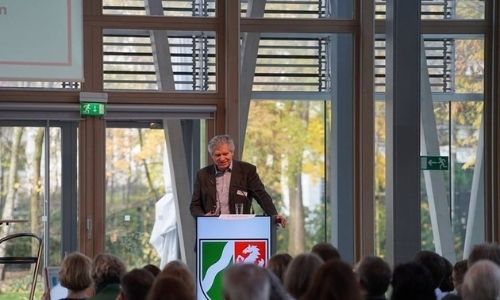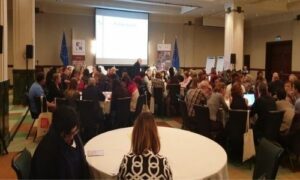Financial education in Germany, like education in general, is a matter for the “Länder”. Accordingly, the extent and quality of financial education vary from state to state. For years, various private initiatives have set themselves the goal of closing this gap. The quality is very different. While textbooks are intensively examined by the responsible ministries, such an examination does not apply to teaching materials from private providers. This means that the materials are often neither checked for their content nor for their didactics.
The annual conference of the German Präventionsnetzwerk Finanzkompetenz took place at the State Representation of the Government of Northrhine-Westfalia in Berlin. Here they discussed the different existing approaches. As one of the key speeches, ECDN’s former president and current Management Committee member, Dieter Korczak, presented the results of the German-Polish study about financial literacy and financial education. He compared knowledge, attitudes and behavior of 16 year-old boys and girls in both countries and gave recommendations how financial education at schools should be done. He especially made the audience aware that our economic system had to be taken into consideration for the content of financial education. For example, he put the question how the fact that 10% of the German population own 50% of all assets is explained in the existing materials.
Other interesting presentations were given by Birgit Weber (University Cologne), Hartmut Walz (University Ludwigshafen), Vera Fricke (vzbv), Ingrid Größl and Sally Peters (iff) and Katharina Witterhold (University Siegen).



